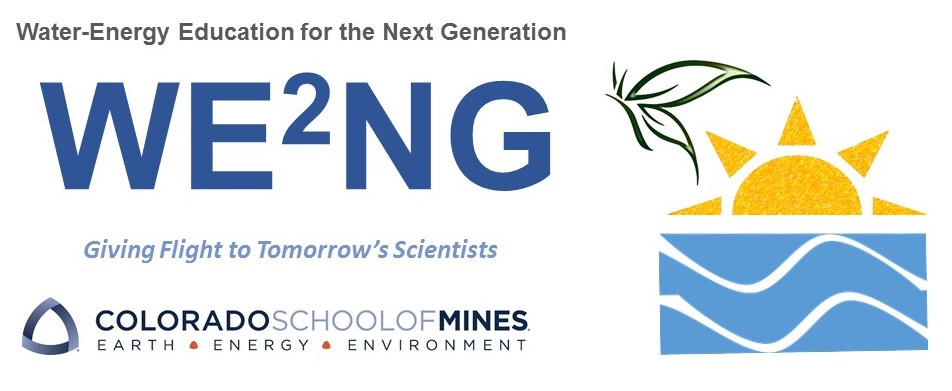
National Science Foundation Research Experience for Teachers (RET)
This is a unique and experiential program focused on the water-energy nexus for Colorado STEM teachers at one of the world’s leading science and engineering schools. It will advance public knowledge and dialogue on the water-energy nexus through the integration of teachers, and ultimately their students, with cutting-edge water-energy research and technology. The program will provide six weeks of summer training and year-round support for 25-30 K-12 teachers over three years, with the intention of infusing current research in the water-energy nexus into K-12 classrooms
Objectives
- To impact teacher participants by increasing their knowledge of water-energy nexus and by expanding their perspectives on science, engineering, and research
- To directly impact K-12 students’ learning, motivation, and engagement by increasing their teacher passion and awareness and by providing mentors from Mines in the K-12 classroom
- To impact K-12 STEM curricula via the creation of standards-based active learning lessons infused with current research which will be available through local, regional, national, and global forums
NEWS AND UPCOMING EVENTS
Environmental Engineering in Colorado STEM Classrooms
“Water-Energy Education for the Next Generation, a Colorado School of Mines Research Experience for Teachers sponsored by the National Science Foundation, kicked off its first summer training with nine teachers from Colorado public schools. The six-week summer program focused on impacting K-12 STEM curricula by infusing standards-based, active-learning lessons with current research in the water-energy nexus….”
To read the rest of the article, click here.
Mines offers water-energy training to school teachers
The Colorado School of Mines recently offered the inaugural summer training experience of the Water-Energy Education for the Next Generation (WE²NG) to nine Colorado public school teachers, giving them the understanding and educational tools to better teach STEM topics.
“This first cohort of teachers has set the bar high,” Mines assistant professor Andrea Blaine, who helped lead the program, said. “I believe that a systemic, sustained method of bringing real and exciting science problems into the classroom could revolutionize the way the next generation of scientists addresses critical issues.”
To read the rest of the article click here.
